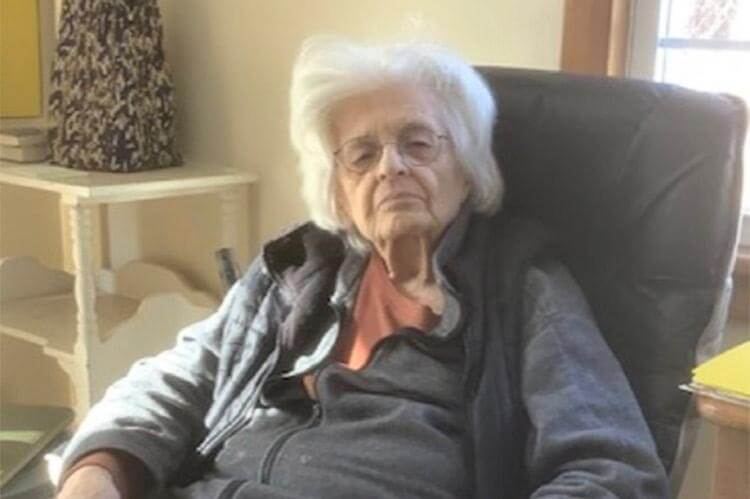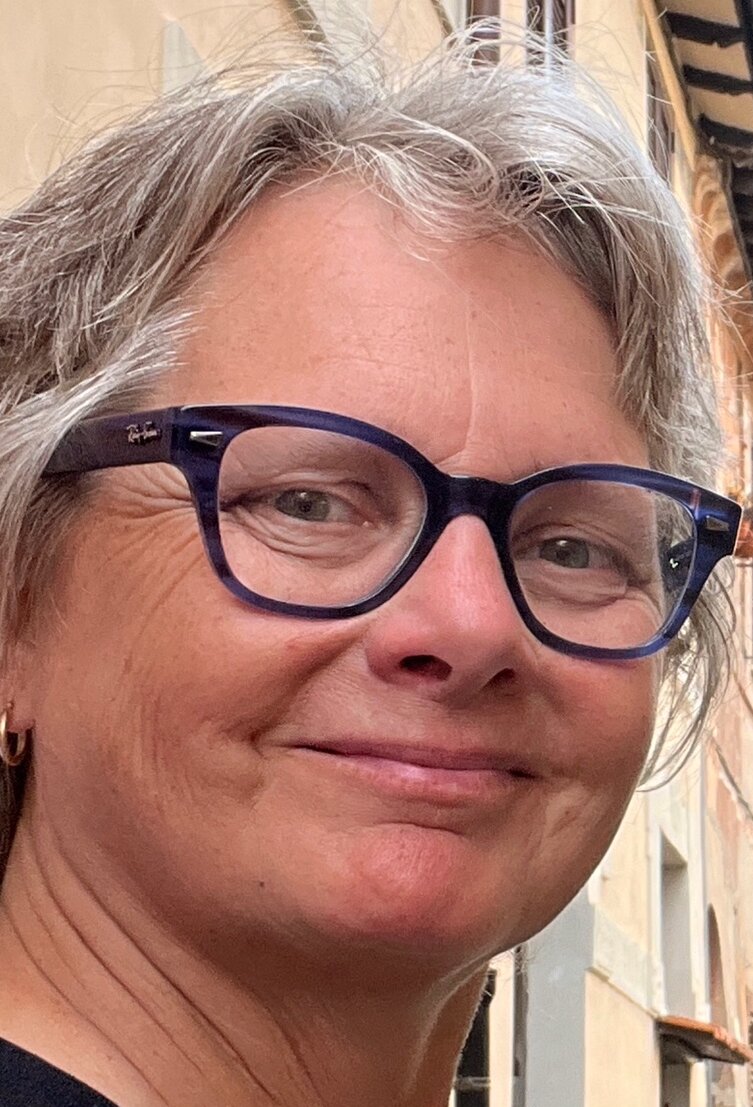As spring quickly turns to summer, it is a lovely time to enjoy all that nature has to offer. Whether sitting near an open window, or, if able, venturing outdoors, we can reconnect with the natural world and our community. For many, walking is an easy and no-cost way to get outside and realize the benefits of physical activity. My husband and I walk daily with our dogs. All four of us are creatures of habit, and we have a typical morning route and a different evening route. While our area is rural, our evening route does take us past a few other homes.
One of these homes always stood out to us. It is small, reminiscent of a cabin, tucked into a wooded backdrop with a sprawling crabapple tree dominating a tidy front yard. When we began walking past upon moving here two years ago, we did not initially notice much activity. The car appeared to move on occasion. Lights would come on and go off. Mail would appear in the box, and then disappear.
After some time, we saw that the individual who lived there was an older woman. We waved, she waved, and we all went on about our day. She wasn’t much interested in conversation, but we exchanged pleasantries. Over time, we would occasionally engage in small talk about the ever-changing New England weather, our mutual dislike of mud season, the “mystery house” across the road, and our local wildlife. The turkeys, specifically, were a point of fascination for her and our dogs.
This went on, in the way that many folks want to be neighborly, but not intrusive. Over time, things evolved. We were invited up to the porch to meet her, instead of yelling across the yard from the road. We learned that her name was Dolores and that she moved here after losing a partner to illness some years prior. After that trauma, she sought to live the quiet and solitary “life of a hermit,” but was realizing the challenge in that mindset as she aged. She fondly referred to her niece, who lived a world away in California. We learned of her fascinating career as a journalist for Life magazine, as a college educator, and as the author of one of the seminal literary works on lesbian relationships and one of the first books used in women’s studies curriculums, and about her time as an activist in the very early LGBTQIA+ movement.
We learned that her name was Dolores and that she moved here after losing a partner to illness some years prior.
And while my husband and I were mutually making a new friend, we noticed another obvious evolution. It was clear that Dolores’s health was in decline. The mail had started to pile up. A walker appeared on the front porch. We occasionally noticed a first responder vehicle. Meal deliveries had started.
Dolores shared more over time. She accepted our offer of bringing in the mail and taking out the trash. We’d pick up occasional items from the grocery store or pharmacy. We were invited inside for conversation.
Dolores’s health continued to decline, and she ultimately chose to participate in a Death with Dignity program. Our friendship blossomed as her health withered. All the while, we tried to give her appropriate space and grace. Dolores chose to pass on International Women’s Day, surrounded by her chosen family and her hospice team. She blazed a trail for those who follow, and individuals of many communities stand upon her shoulders.
Checking in on your neighbors while going about your normal routine seems like such a simple thing, and is also easy to forget in the hustle and bustle of life. I share this story as one example of the potential that lives within these simple acts. You never know who you may meet, or how a relationship can blossom. A simple wave or smile may brighten someone’s day. A conversation with someone may be the only social interaction that person has all day or all week. As in our case, you may make a new friend, and even if that friendship is short-lived, you will be gifted with memories. In our time with Dolores, we learned so much about her and ourselves. We were introduced to her chosen family, made new friends, and she taught us something that we will always remember: the Jewish concept of tikkun olam—work done to repair and improve the world. I invite you to carry this concept with you, as we now do, as you move down life’s path.
This article is dedicated to Dolores Klaich, 1936-2023.
Ways to Get Outside for Health and Community
For those who are able, our area offers a wide array of recreational opportunities such as walking and hiking, biking, fishing, bird watching, kayaking, and others. The mass.gov website provides lists of statewide recreation sites, including those designed to be accessible for a wide range of individuals and abilities. The season of festivals, community events, outdoor concerts, and farmer’s markets is soon upon us. All are wonderful opportunities to socialize and connect with others. For those unable to fully get outside, spending time near windows and doors still allows for sensory stimulation by experiencing sunlight, scents, sights, and sounds of the outdoors, and can offer opportunities for connecting with nature.
Walking has many physical benefits, such as lowered heart rate and blood pressure, stronger bones and better balance, and better management of chronic conditions such as high blood pressure and diabetes. Walking also fosters social connections and interactions, especially with your neighbors and community members. Visit the Franklin Regional Council of Governments website for ideas for walking routes throughout the area.






